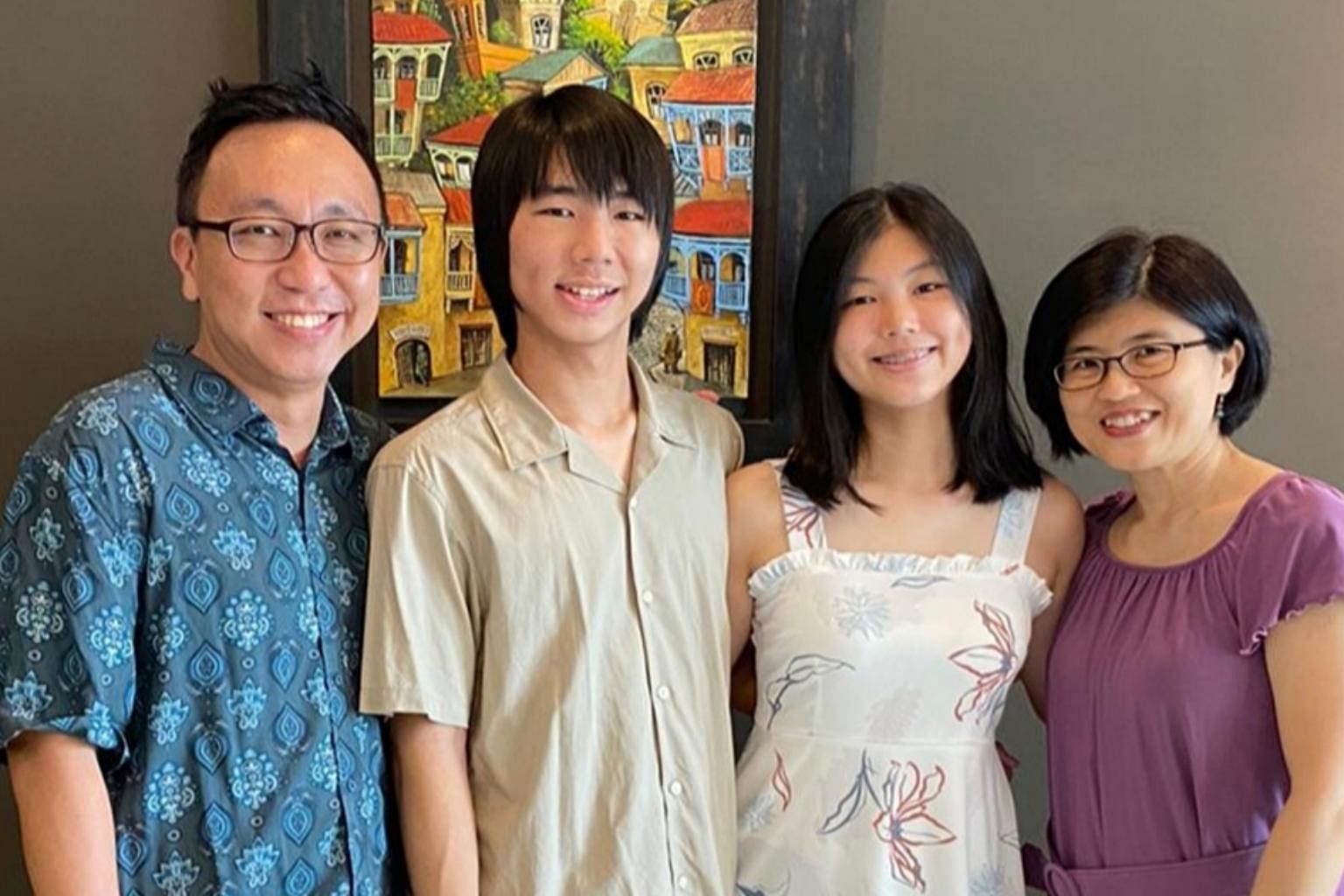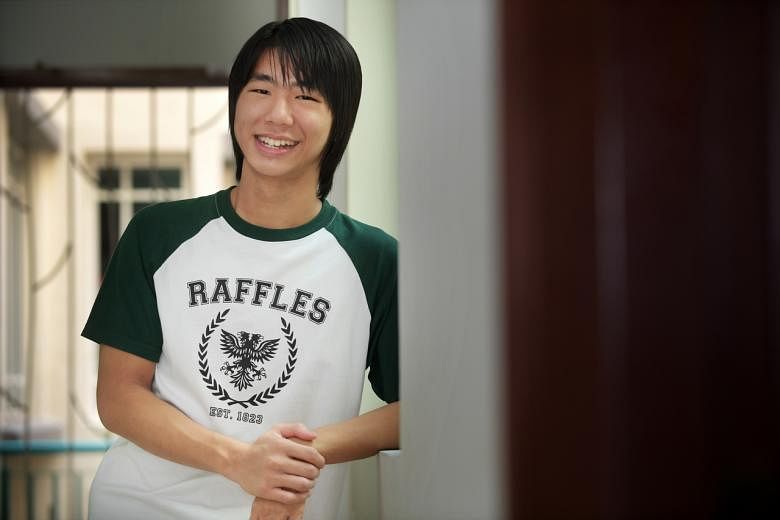SINGAPORE - Joshua Teo was teased and made fun of as a boy.
The other kids would call him "alien" and "Shrek" - after the fictional ogre character - and young Joshua would get hurt and upset.
Once, a primary school classmate asked him if his ears looked the way they did because of a car accident. He quietly said no.
The 18-year-old Raffles Institution (RI) graduate has microtia, a birth defect that causes the external part of both ears to be underdeveloped and deformed.
The condition also meant that his hearing was affected and could register only about 40 per cent of all sounds.
"My doctor said that my hearing without a hearing aid is like a normal person hearing while tightly covering both ears with their hands," he added.
"When I was younger, I felt angry and shocked when people made rude remarks. Looking back, I don't blame them, kids tend to shoot their mouths without thinking," said Joshua, who collected his A-level results on Friday (Feb 19).
He had his first surgery when he was six.
A bone-anchored hearing aid was installed, which sends sounds to the inner ear via vibrations through the skull.
"I had to wear a headband attached to the hearing aid. I still remember people around me asking what I was wearing. I think the sound quality was also quite horrible," he said.
The implant worked for about a year or less. "One day, there was blood from the hole behind my ear where I usually connect the hearing aid. I had to go to hospital and I was recommended another surgery."
That year, he underwent another procedure to install a new hearing aid, the vibrant sound bridge, which converts sound to mechanical vibrations. With this, his overall hearing ability is about 60 per cent to 80 per cent.
Joshua grows slightly longer hair so that the external part of the device, an audio processor that is worn on the left side of his head, can be pinned to his hair.
"In primary school, I was a very shy boy who was very conscious of people staring at me," he said. "Looking back, I think in reality, people didn't really care."
As a primary school pupil in Maris Stella High School, Joshua had no real motivation to study and would sometimes daydream in class.
His wake-up call came after he got a score of 224 for his Primary School Leaving Examination, missing the cut-off for the school's secondary section for affiliated pupils by just two points.
He appealed and was thankful that the school granted him a place.
"I began to see my condition as a motivation for me to study hard. I wanted to show others that I could rise above my challenges and excel academically," he said.
"In Secondary 3, I made it a personal goal to pay attention to every word my teachers said in class and to not be distracted by my friends. I also consulted my teachers a lot after class," he added.
His efforts paid off and he achieved eight points - four after counting bonus points - for his O levels. His father convinced him to place RI as his first choice.
"I never expected I'd be in a position to even consider such a prestigious school. I always flipped past RI and Hwa Chong Institution in the admissions booklet," said Joshua, who has a younger sister. His father is a vice-principal and mother a housewife.
"Initially, I had insecurities about my educational standing in the school and suffered from imposter syndrome. However, later I realised that everyone in RI was just trying their best."

To this day, Joshua cannot hear everything people say.
"It's my daily life - I have to get teachers or my friends to repeat what they say when I can't hear them, especially if they talk to my right side... I make sure to sit in front of the classroom all the time," he said.
It is also difficult for him to take part in games like basketball because of the risks of damage to the implant and internal bleeding.
Still, he enjoys being physically active. "I try not to sit out and make sure to be careful," he said. "I look to other avenues to keep fit. No one talks to me during swimming so I remove my aid before I get into the water."
Joshua, who is exempted from national service because of his condition, hopes to study psychology in a local university.
His mother is his biggest pillar of support. "She left the workforce to take care of me when I was born. She always puts my sister's and my needs before hers. Recently, she told me her initial fears and worries about raising a child like me, but I think she has done a wonderful job," he said.
"I'm grateful that my parents did not limit me and just wanted me to do the best I could."
Rude remarks about his appearance have dwindled over the years and he has learnt to let go of grudges.
"I think it is because I have matured in my Christian faith. That makes it easier for me to extend grace to others," he said.


